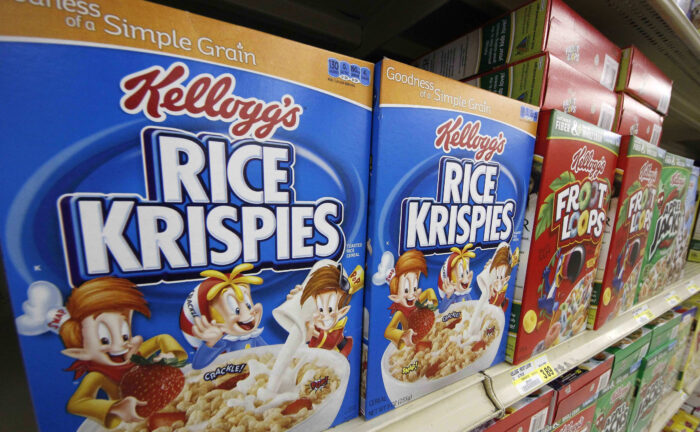
Getting Rid of a Tough Business
I’ve had an old Tommy Hilfiger shirt hanging in my closet for about 10 years. I could never figure out when to wear the shirt; it had a bold pattern and didn’t go with anything. Then it started to get dusty, which is always a bad sign.
Last weekend I gave up and donated it to the Salvation Army. This was a great move; the shirt is no longer cluttering my closet, looking forlorn, and someone else is hopefully enjoying it.
That is essentially what the Kellogg Company did this week; Kellogg got rid of the North American cereals division, spinning it off into its own company, WK Kellogg. The remaining company adopted a new name, Kellanova.
While some have criticized the move, I think it makes enormous sense.
The Problem
The Kellogg Company had a big problem: its cereals business was big and struggling. Looking ahead, the trends would likely continue.
It is a bit like Kraft’s BBQ business. I spent years working on that brand, struggling to deliver profit growth. But the category was flat, and we faced tough competitors, so market share wasn’t likely to move. The category was price sensitive, which meant there wasn’t an easy way to increase prices. Marketing spending and fixed costs were both essentially flat. There weren’t obvious unmet needs that could spark innovation.
It wasn’t a bad business, but it wasn’t going to grow.
This is essentially the situation for Kellogg’s cereal business. The category is declining, market share is stable, and competition is intense. There isn’t a lot of opportunity to increase prices, especially after the recent increases. Spending is likely flat. Opportunities for innovation are few; people have been trying to innovate in that category for decades. If there were easy innovations, they would likely have been discovered year ago.
The Opportunity
The rest of Kellogg’s portfolio has more opportunity. The company owns brands including Pop Tarts, Pringles, Rx Bar, Cheez-It and Morningstar Farms. Many of the snack brands are growing quickly and there is room for innovation.
Splitting Off
Kellogg could have continued as one company, but this would not have been optimal. Separating the firms does three good things.
First, it frees Kellanova to deliver better results. Previously, the cereals business dragged down overall company performance. People watch profit growth from year to year. If part of the portfolio is flat or down on profits, it pulls down the average for the entire firm. Essentially the growth brands offset the declining brands, leaving uninspiring overall financial performance. Kellanova now has the potential to deliver stronger growth.
Second, it improves focus. Previously, executives had to worry about the big cereals business and the growth brands. The more time leaders spent on cereals, the less time they could spend on the rest of the portfolio. After the split, both companies will have greater focus.
Third, the move creates a geographic split. In a somewhat unique situation, the Kellogg Company was split between Battle Creek, its long-time home, and Chicago. Now, the cereal company will be based in Battle Creek, and the snacks group will be in Chicago. This makes perfect sense; the part of the firm most focused on innovation will be in a big urban center, likely to attract talent and spark ideas. The traditional cereal business will carry-on in Battle Creek, presumably with a lot of long-time employees that know the business exceptionally well.
The Outlook
CPG firms are getting clobbered this year in the stock market, as they battle inflation and high interest rates. I suspect the new Kellanova will be a good investment for the long-term.
The firm will post stronger growth numbers and provide a solid dividend. It won’t be Tesla or Apple, but for patient investors it will be a good holding now that it has gotten rid of the difficult cereals business.
Just like that old shirt, sometimes getting rid of things is the best move.
Comments RSS Feed